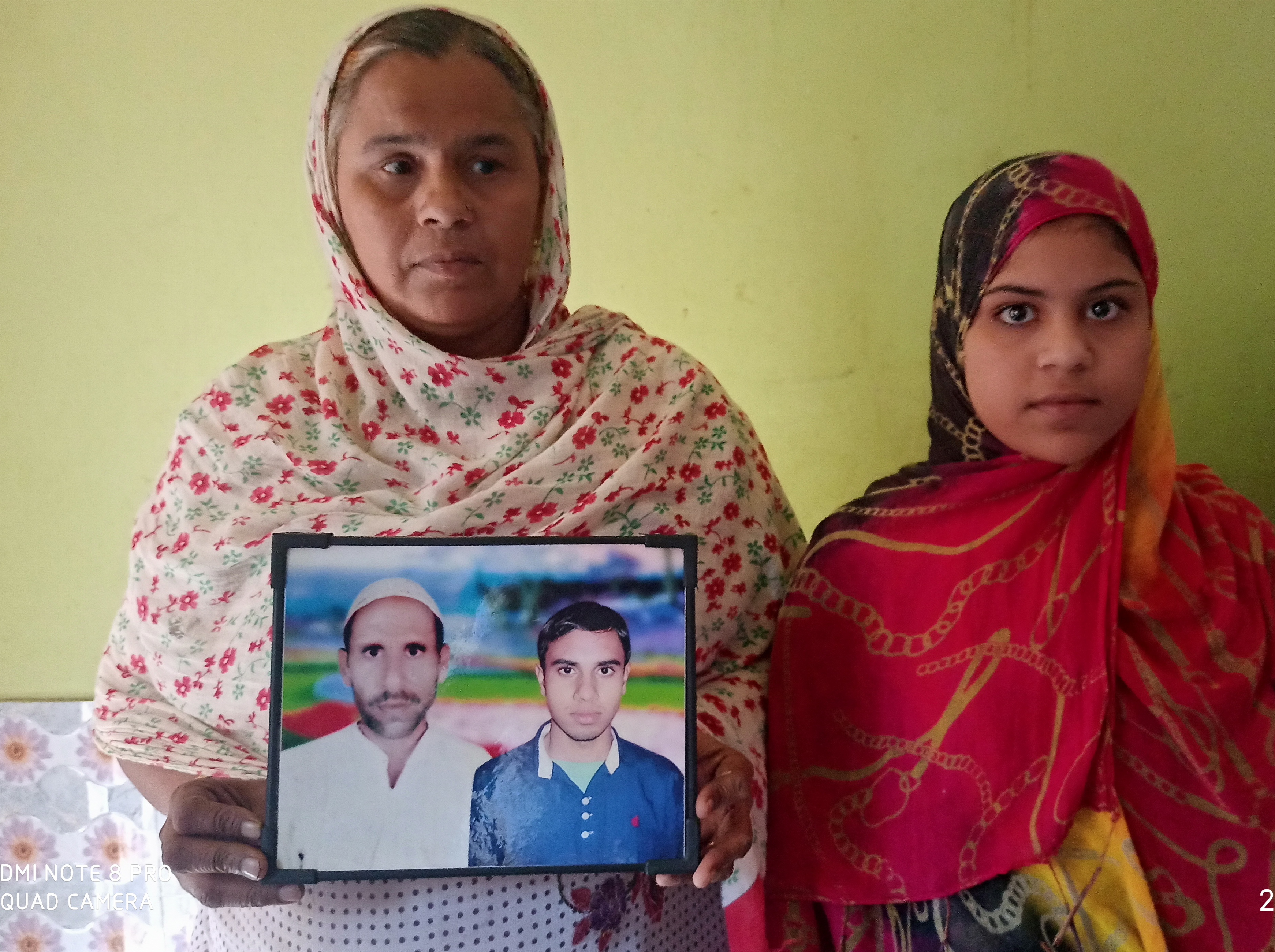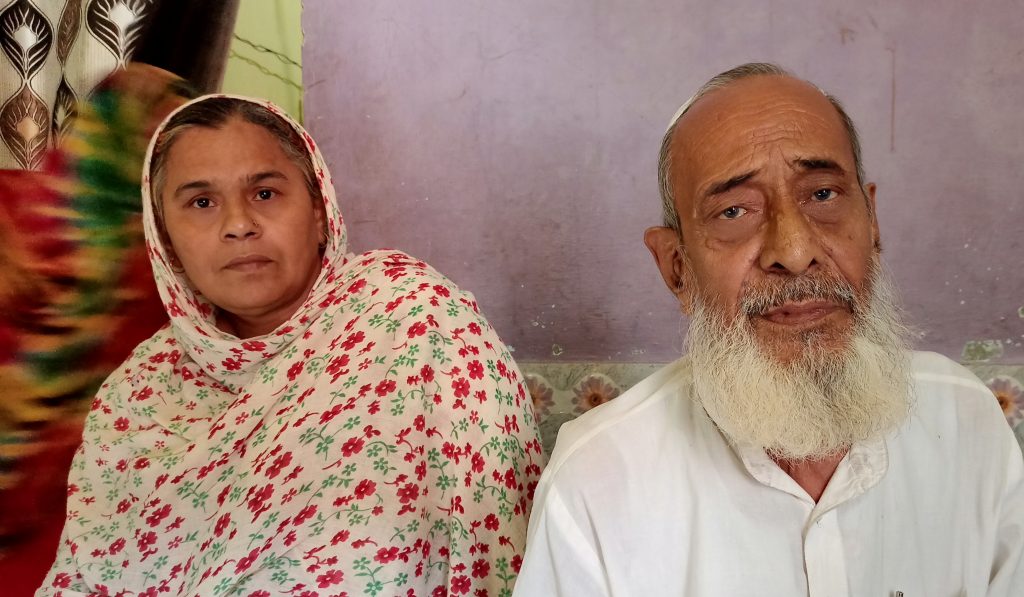Widowed in Muzaffarnagar riots, 50-year-old Nimmi has given up on getting justice

By Aas Mohammad Kaif, TwoCircles.net
Nimmi lives in Muzaffarnagar’s Kidwai Nagar locality. Her real name could very well be Naeema, but she never went to school and nobody ever called her Naeema anyways. Nimmi and her older sister were married off by their father in a joint ceremony. Both were married in the same family.
Nimmi was 14 at the time of her marriage, now she is 50.
To save money, her labourer father, Shafeeq, married her and her sister to two brothers. The name of their in-law's village is Bahawadi. This non-descript village in western Uttar Pradesh’s Shamli district came into news in 2013 when during the anti-Muslim riots a PAC team refused to enter the village and an IPS officer on special duty, Raghuvir Lal, accompanied by only his gunner, took on the rioters. Raghuvir still says that day was the biggest day of his life. Upon his return, his wife cried embracing him and his father said he was proud of being his father.
Bahawadi was where Nimmi was widowed. At 9 am on 8 September 2013, to be precise.
On that day, in this village of Shamli district, Nimmi’s innocent daughter and husband were shot. Nimmi says they were fleeing to save their lives in a vehicle packed with 15-16 people, meant only for five people. “A few people were left behind, including my husband. I had two grown-up daughters. It was more important to save them therefore their father sacrificed himself. But I don’t know how my 11-year old daughter died. She was hiding in the kitchen. Probably she caught a bullet in the blind firing. Bullet shows no mercy. Then the police arrived, and the rest were saved.”
Nimmi says her husband used to sell utensils going village to village on a bicycle. That bicycle was also left behind. “All was left behind. We never went back, we will never go. None of us lives there anymore. Now when people mention that village, they say some Jats are remorseful. Some people from the village tried to persuade us to return. We are not resentful of the Jats. Some of them are good, some of them are bad.”

Nimmi had 10 kids. Now she has eight. An 11-year-old daughter died in the riots. One son died due to suicide last year. There is one more son who got a job and gives Nimmi Rs 3000 every month. She married off her three daughters with the compensation money. Nimmi says they are of “Qureshi” caste and dowry is common in marriages. “The daughter’s in-laws didn’t ask for it but we had to give it. Good thing is that the in-laws are not greedy.”
Nimmi’s father, Shafeeq, is 72-years-old. When Nimmi, while narrating her story, started crying, Shafeeq was there and started getting uneasy. Of Nimmi’s six daughters, the younger three are also of marriageable age. Shafeeq says he prays to Allah that his soul is spared till they are married off so that they don’t miss their father too much. “I have taken care of them so far.”
Shafeeq gestures towards Mohammad Umar, the husband of the local corporator, who was sitting next to him and says they are thankful to him. Mohammad told us that Shafeeq lives near his house. “When, on 8 September, Shafeeq found out about the riots, he came to him in distress. Riots were still going on and visiting the hospital, filing a case, arranging for burial were big challenges. Satyapal Singh was the town police chief at that time, and I knew him well. He was also a Jat but was like an angel in human form. He helped us a lot. He sent a police team with us from here. I saw the killings, saw heaps of dead bodies in the hospital, crossed the streets where mobs were rioting, but we still went and brought back the people surrounded in the village.”
Now Nimmi is fighting the case and says, “Every day I hear the news of the accused getting acquitted. People tell me that nothing will happen, nobody will be punished. My 200 square yard house in Bahawadi is being valued at Rs 30,000. Here in the city land is Rs 30,000 per square yard. We were deracinated. I was widowed. I remember my daughter. I don’t cry in front of my kids. After my husband’s death, my father supported me else I wouldn’t have been able to live. I have no hope of justice now. It’s all destiny. ”
Seven years after the Muzaffarnagar riots, most of the accused have been acquitted by the courts. The surviving victims of the riots have had their lives turned upside down. More than 25 widows like Nimmi have additional trauma. This is only one story of women victims of riots. Most of the younger widows remarried. Those who couldn’t have dedicated their lives to their kids. The Muzaffarnagar riots was a tragedy yesterday and is a tragedy today. Intellectuals call it a political riot. In the past seven years, there have been many efforts to bring Jats and Muslims closer and there have been some successes, but there is still a long way to go.
